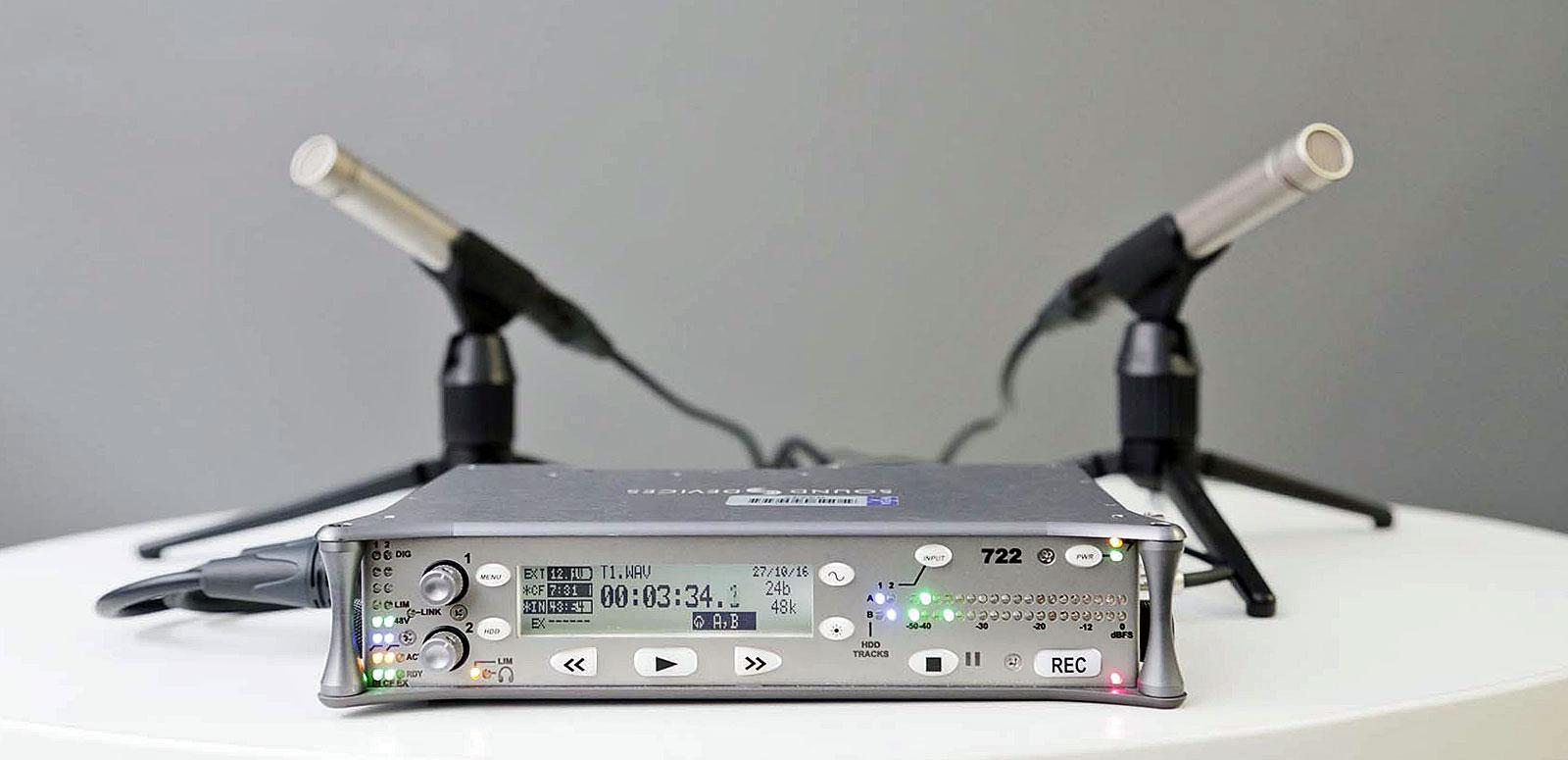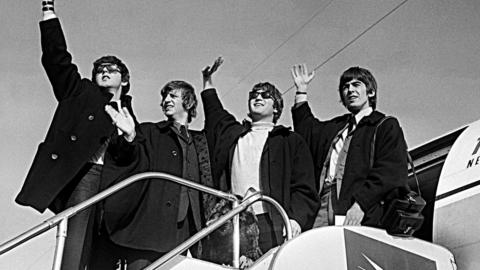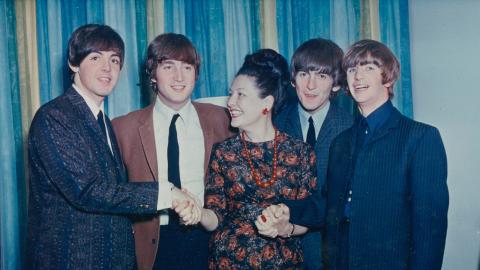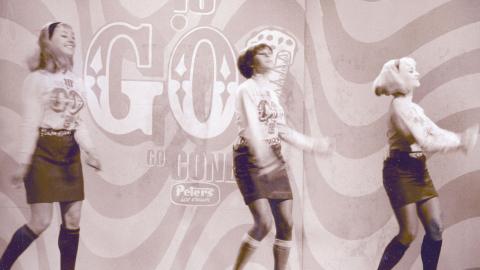

I worked with The Beatles
The NFSA’s Oral History program preserves the stories of film, TV, radio and recorded sound professionals, in their own words. It is an incredible resource full of first-hand recollections of their careers, and their memories of those they met along the way.
For the 50th anniversay of The Beatles’s Australian tour, we’ve selected the following excerpts from the Oral History collection:
Frank Ifield and his supporting act

English singer Frank Ifield was a huge recording star in the early 1960s, with hits such as ‘Lucky Devil’ (1960) and ‘I Remember You’ (1962).
Any new band would’ve been lucky to be his supporting act, including four young men from Liverpool. In an oral history conducted by Lorraine Pfitzner for the NFSA, Ifield recalled the first time he heard about this new group called The Beatles, and why he agreed to give them the chance to perform on his tour:
‘I was working in Liverpool and a guy came up to the stage door and asked to speak to me. His name was Brian Epstein, and he came in and said, “Listen, it’s —- I know you’re —- you’re just about to embark on a huge tour.” He said, “And I would very much like a —- you know, if my group could go on your tour with you. Because they’ve had no experience outside of Liverpool and would you put them on the tour?”
And I said, “Well, who are you talking about?” He said, “Well it’s a new group, called The Beatles.” And he played me the record, you know, and I thought, well I like that record. It’s similar to what I was doing anyway; they had the harmonica thing and the “oooh” and all that, so it was very similar to what I was doing. So I thought, okay yeah, this sounds good.’
Frank Ifield, interviewed by Lorraine Pfitzner on 13 September 2005. NFSA title: 679203
Martin Benge at Abbey Road
Studio manager, producer, engineer and mixer Martin Benge discussed a life and career in music with interviewer John Olson – from his early days at EMI/Abbey Road Studios in the 1960s, to his time as vice-president of EMI/Virgin Studios in the mid-90s.
In this clip, Benge recalls the time that EMI (later Abbey Road) studio manager Alan Stagg turned the power off during a Pink Floyd recording session, because the band had dared to keep working beyond the closing time of… 10 pm! The following day Roger Waters told the story to Paul McCartney, who decided it was time for a change:
‘Paul rang the chair of EMI, Sir Joseph Lockwood, and demanded a meeting, to tell him that it was about time the studios started to fit in with what the artists wanted rather than the other way around. And from that day on, really, everything started to change and the sessions started to run much more along the lines that we’re used to these days, with longer sessions starting later and going well into the night or into the next day, because those hours suited the artistic temperament of most of the artists who wanted to work late.’
Martin Benge, interviewed by John Olson on 27 August 2013. NFSA title: 1143871
In this next excerpt, Benge shares his thoughts on the The Beatles’s Sgt. Pepper’s Lonely Hearts Club Band and Abbey Road albums, and why EMI Studios officially changed its name after the success of the group’s record.
‘I think Sgt. Pepper’s Lonely Hearts Club Band was just such an amazing piece of work as a recording project, given the equipment that was used. It was an extraordinary achievement by all concerned: George Martin, The Beatles, Geoff Emerick and Richard of course. That recording was so amazing to listen to, given what we knew the studio had been capable of in the past. It was just a giant leap into this world of “anything’s possible”.’
Martin Benge, interviewed by John Olson on 27 August 2013. NFSA title: 1143871
In this last clip, Benge talks about the The Beatles Anthology project in the mid-1990s:
‘All the original masters were held at Abbey Road. It was sort of the final release of material, and the bits and pieces that were stored in the vaults and had never seen the light of day. Outtakes, chit-chat between the takes… because the tapes used to run all the time on The Beatles’s sessions.’
Martin Benge, interviewed by John Olson on 27 August 2013. NFSA title: 1143871
The National Film and Sound Archive of Australia acknowledges Australia’s Aboriginal and Torres Strait Islander peoples as the Traditional Custodians of the land on which we work and live and gives respect to their Elders both past and present.


